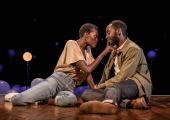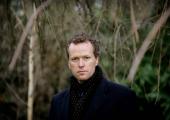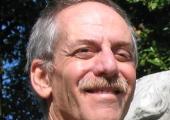Constellations, Vaudeville Theatre review - a starry revival

Atim and Jeremiah flare bright, Wanamaker and Capaldi burn slow
A cosmologist and a beekeeper walk into a barbecue. Or a wedding. The beekeeper is in a relationship, or married, or just out of a relationship, or married again. The cosmologist shares the secret of the universe with him: it’s impossible to lick the tip of your own elbow, because if you did, you would gain immortality. Somehow, the line works – sometimes.









